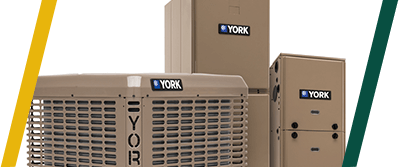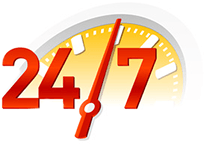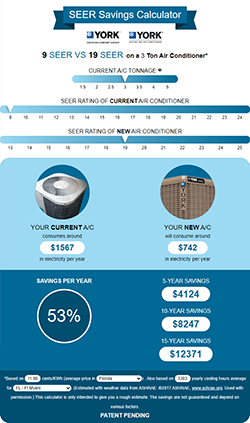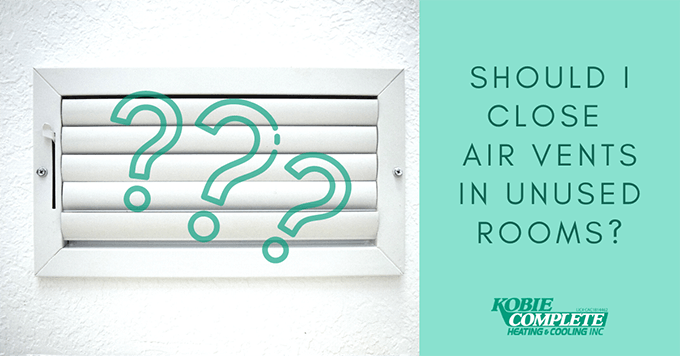
Do you have a room in your home that’s not often used, like a guest room? With air conditioning costs constituting so much of your electric bill, especially in the summer, it seems like a waste to pay to cool those unused spaces. Closing the air vents in unoccupied rooms sounds like an easy and logical step. You would save energy and direct more conditioned air into rooms you’re actually using, correct?
Unfortunately this is not the case — although it is a common misconception. We often hear questions about closing air vents from customers keen on saving money on air conditioning in Port Charlotte and our Southwest Florida service area. Far from saving you money, closing air vents in unused rooms can actually result in more energy use, and can even kill your air conditioner.
What’s So Bad About Closing Air Vents?
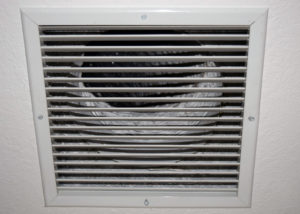
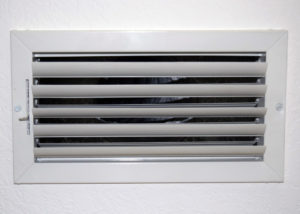
To understand why closing air vents in unused rooms is so potentially harmful, let’s talk about how your air conditioner works. The blower, located in your air handler, moves the air through your ducts. Warm air is pulled in through the return vents into the ducts. There, it passes over the coil in the air handler where it is cooled and pushed out the supply vents and into your home. Your ductwork and blower are designed to operate within a certain amount of air pressure that results from a running system. Closing vents causes the pressure to increase and the airflow to decrease. Other obstructions in the ductwork or a dirty air filter will have a similar effect on the airflow.
The Effects of Increased Pressure and Low Airflow
Here are some of the negative effects that too much pressure and low airflow can have on your air conditioner:
Too much pressure in the ductwork can create leaks and increase the size of existing leaks. So instead of having the cold air going into the unused room, it might be leaking into an unconditioned space like the attic. This is probably not what you wanted. In addition, if your blower motor has to work against higher pressure, this will result in more strain on the system and a higher risk of a breakdown, meaning you’ll have to call for an AC repair.
Low airflow will in any case decrease AC efficiency. Depending on your blower type, the blower will either start to run faster (variable speed) to increase the airflow, hence using more electricity, while a conventional single-speed blower type will continue running at the same speed, but result in less airflow. If air is passing over the coils too slowly, coolness from the coils cannot be transferred as well to the passing air. This will result in a longer cooling time. Plus, if not enough heat is transferred to the coil because there is not enough airflow, the coil can freeze over. In the worst case this can permanently damage components like the compressor.
What About Heating?
Closing air vents to certain rooms while heating your home can cause similar damage to your system. Closing vents still results in increased pressure and exacerbates air leaks in the ductwork. But rather than causing a frozen coil when cooling, decreased airflow when heating with a heat pump can cause the coil to overheat. In a furnace, reduced airflow can cause the heat exchanger to overheat and crack. Worse, a cracked heat exchanger can allow carbon monoxide to seep into your home.
What Are Some Alternative Ways to Save Money in Cooling Costs?
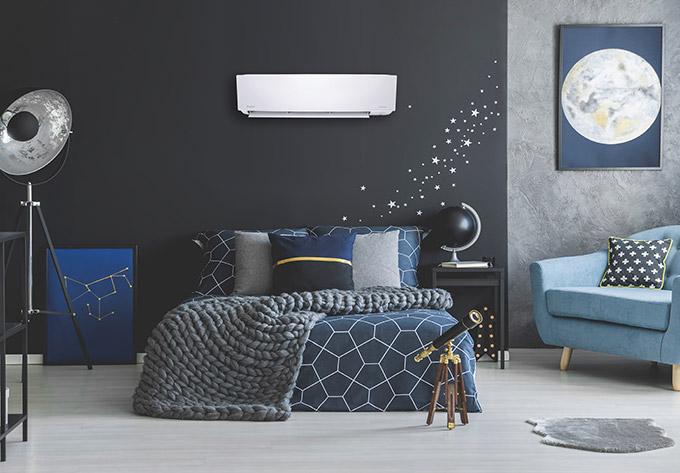
We’ve established that closing air vents in unoccupied spaces is a no-no. But this doesn’t mean there aren’t other ways to save money and be more energy efficient. For example, you could install a smart thermostat, which would allow you more precise control over the temperature in your home. Also, a zoning system allows you to establish various “zones” in your home where you can set different temperatures. For instance, you can have your guest room set to 80° the whole day, while you set the temperature in the master bedroom to 76° at night and to 80° during the day. This will help to reap you the energy savings you were hoping to achieve by closing air vents – without the negative effects.
Another option is to install ductless mini split systems in rooms that require extra cooling. This would allow you to set your central air conditioner to a higher temperature, and use the mini split units to add more cooling to rooms where its needed.
Do you live in the Englewood, North Port, Punta Gorda or Sarasota, Florida area? Kobie Complete is your home comfort specialist and expert for air conditioning installation and repair. Call today! We’ll be Right Over. (941) 474-3691
Last Updated: April 21, 2021
Sources:
1 https://www.energyvanguard.com/blog/can-you-save-money-by-closing-hvac-vents-in-unused-rooms/
2 https://apollohome.com/tips-for-your-home/closing-air-vents/

